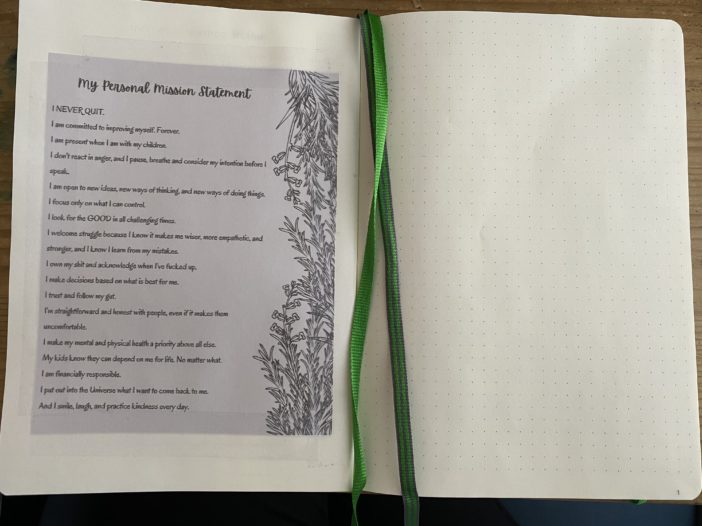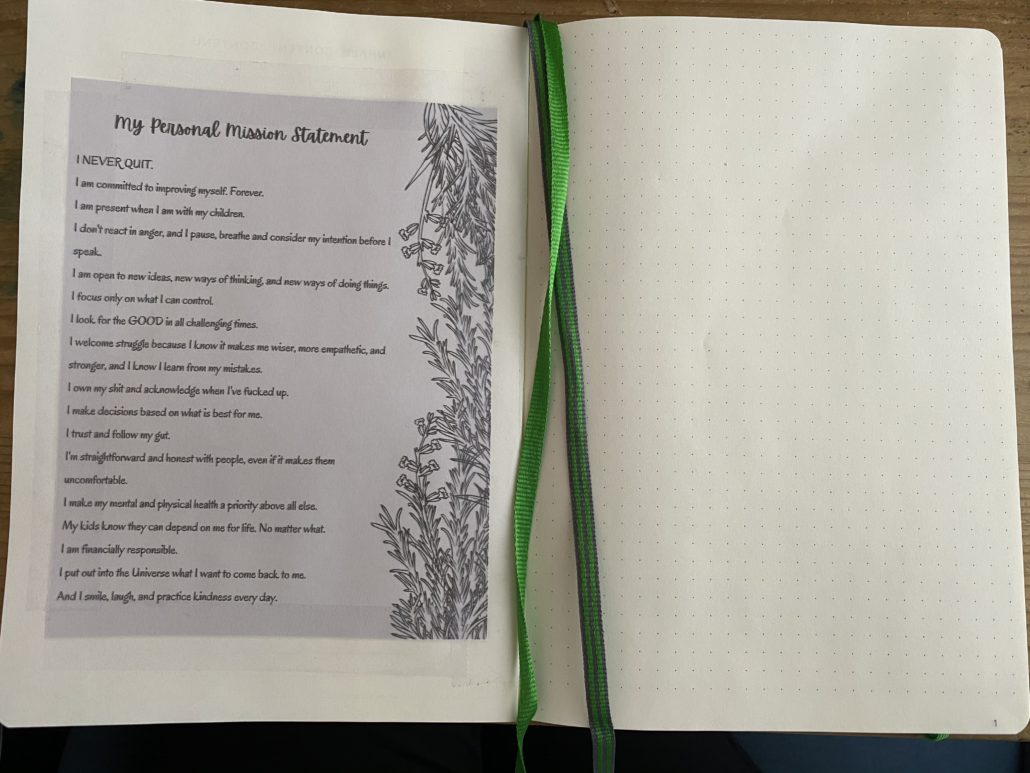
This past month I worked with my E-School members on personal mission statements.
This isn’t an original idea — it came from reading the book The Seven Habits Of Highly Effective People.
According to The Seven Habits, we each have a center, and that center determines what we focus on most and it how it affects every area of our life.
For instance, if you are spouse centered, you live your life focusing first on the needs of your spouse. Your priorities, routines, habits, and ultimately, self worth and happiness, are dependent on your spouse.
If you are family centered, like being spouse centered, your main focus is on someone else. Usually your children. When your identity is determined by your children, you may feel needed and important. But you probably also feel unfulfilled and resentful.
You might be work centered. If this is you, your work comes first, almost always. It is your biggest priority and you base your value on your job and your professional success.
There are other “centers.”
You may be money centered, pleasure centered, friend centered, enemy centered, church centered, self centered, or possession centered.
In each of these centers, your value and self confidence is determined by someone or something else.
It’s when you are principle centered that you are living a life where you are true to yourself, living a life that’s robust and full of purpose, and where your self-worth and happiness comes from within.
These principles guide every decision you make and every action you take.
They make you the best parent, spouse, friend, employee, supervisor, leader and human being you can be.
Operating from a place that’s principle centered enables you to lead a life where you fulfill yourself and your purpose and, on your death bed, look back with no regrets.
Your Personal Mission Statement pushes you to think about what your core beliefs and principles are.
It reminds you and guides you to make decisions based on what is in your best interest and to focus on the things that bring you personal fulfilment and will put you in a position at the end of your life of having no regrets and knowing you didn’t leave anything on the table.
It guides you and helps you in challenging times. It reminds you of the person you strive to be.
It may not be who you are now, but it reflects the place you ultimately want to be.
We spent a long time working on personal mission statements in E-School.
Here is mine:
I NEVER QUIT.
I am committed to improving myself. Forever.
I am present when I am with my children.
I don’t react in anger, and I pause, breathe and consider my intention before I speak.
I am open to new ideas, new ways of thinking, and new ways of doing things.
I focus only on what I can control.
I look for the GOOD in all challenging times.
I welcome struggle because I know it makes me wiser, more empathetic, and stronger, and I know I learn from my mistakes.
I own my shit and acknowledge when I’ve fucked up.
I make decisions based on what is best for me.
I trust and follow my gut.
I’m straightforward and honest with people, even if it makes them uncomfortable.
I make my mental and physical health a priority above all else.
I am dependable and follow through with promises to other people and myself.
I am financially responsible.
I put out into the Universe what I want to come back to me.
I smile, laugh, and practice kindness every day.
These are the principles by which I want to live my life.
I have this printed out and taped in the front of my journal.

I read it first thing every morning.
I’m not always successful in carrying out all the items on my mission statement.
But my mission statement is always successful in reminding me of the direction I want to go and the person I strive to be.

Hi I know this is an older post but I stumbled upon it a few weeks ago as I worked on a simple personal and professional mission statement for work. I bookmarked it for later and finally got back to reading it. And now I’m “stealing” it for myself. I think it’s beautiful and so powerful. I feel like I’m living my life on autopilot and I’m not sure what I stand for or what I’m even doing
I know this is an older post but I stumbled upon it a few weeks ago as I worked on a simple personal and professional mission statement for work. I bookmarked it for later and finally got back to reading it. And now I’m “stealing” it for myself. I think it’s beautiful and so powerful. I feel like I’m living my life on autopilot and I’m not sure what I stand for or what I’m even doing 
And then went to your “About” page and it brought tears to my eyes. I feel like I can so relate to your words and the way you write is so real. I’m 35 and have two small girls in a frustrating marriage. Always putting everyone else first, neglecting myself to the point of not really knowing who I am. And I don’t want to look back in 10-15 years and wonder how I got there.
All of that to say – how did you do it? How’d you become the badass you know you were meant to be?
Merry Christmas